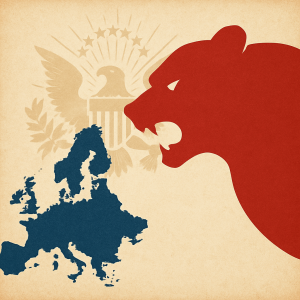Obviously, not everything will be changed in a few months. Even those who would like it to, cannot hope that this Conference on the Future of Europe, which is finally being held, will immediately lead to a Europe of Defence or, even less so, to a United States of Europe. By splitting the objectives between long-term projects and immediate reforms we could, however enable the Union to take essential and irreversible steps forward.
A first example. However necessary it may be, we will not move quickly from unanimity to qualified majority voting in all areas. Unfortunately, this will not be possible particularly in foreign policy, but nothing could prevent us today from abandoning unanimity in fiscal and social matters in order to achieve harmonisation in these areas and to put an end to the dumping practices that create intolerable distortions of competition, social injustices and losses of revenue for the common coffers.
Second example. No matter how strong the political will, it would not allow for the immediate creation of a common army for the 27 Member States, but if we must move towards a common Defence, would there be nevertheless steps that we can take without further delay? There are several, in fact, since nothing forbids us to develop joint operations in the Sahel or in the South China Sea; to no longer be satisfied with financing humanitarian missions together but to actually undertake them, with deployment of field hospitals, delivery of foodstuffs and the securing of relief areas under the European flag; and above all, everything compels us to develop together the weapons of the future that none of our countries would have the means to develop alone.
Drones of the future, space weapons and security, cyber warfare, military assistance to a neighbouring region or the fight against biological weapons are the perfect ground on which to build tomorrow’s European defence, because we will be starting from scratch or almost from scratch, we will have everything to build and to design and we will be able to do so with 27 or several countries in any case.
Third example. No one could reshape our political chessboards by decree, even though – as we are seeing more and more clearly in the European Parliament – on the one hand a large conservative party bringing together the extreme right and the right of the right and, on the other, a large democratic party ranging, as in the United States, from the utopian left to a vast liberal and social centre.
This evolution will take a long time to happen, but it can be precipitated by replacing the national lists competing in the European elections with transnational lists that are obliged to go beyond national particularisms and define pan-European programmes. This would make European democracy much more lively and comprehensible, and it would therefore make sense for the presidency of the Commission to go automatically to the list or coalition that came out on top.
Here again, a small step would herald larger ones, but another example. If the European Union has a duty – and it does – to take the lead in the fight against global warming, why should we continue to try to save our national airlines with hundreds of billions of euros instead of setting up two or three European airlines, four at the most, and investing the money saved in a network of high-speed trains, running day and night, covering the entire territory of the Union and reaching countries which, even without becoming Member States, will get closer and closer to us?
Why not invent… Well, let’s say Allegra Europa, the Airbus of railways; the precursor of major joint industrial projects in the electric car and medical research; or the centre of European university research centres that we could obviously create in Strasbourg?
With limited but forward-looking advances in social and fiscal matters, Defence, politics and industry, we can initiate and found this confederation of independent states in an ever-growing interdependence that will be called the United States of Europe.



